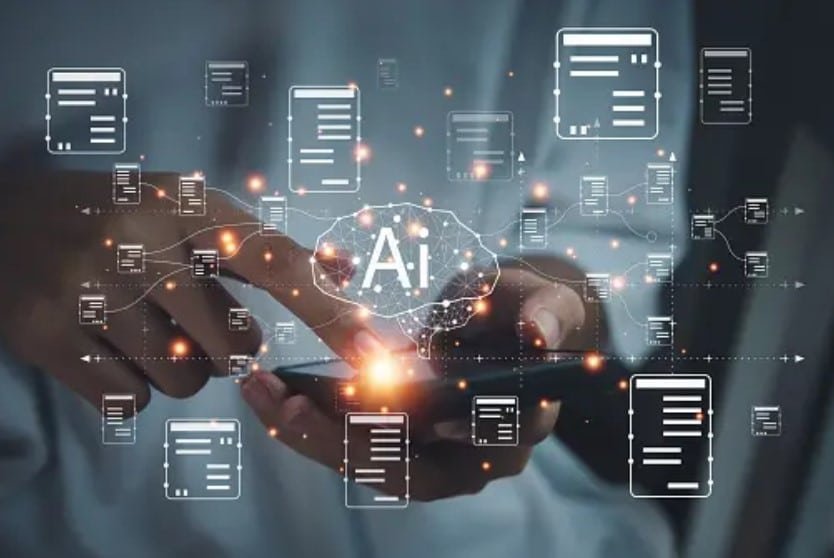Tech
AI Ascending: Unveiling the Transformational Trends Shaping the AI Landscape in 2024

Introduction
As we approach 2024, the landscape of artificial intelligence (AI) is on the verge of a remarkable surge in innovation and progress. This groundbreaking technology, formerly relegated to the realms of science fiction, has seamlessly integrated into our everyday experiences, bringing about a revolution across various industries and redefining the fundamental dynamics of human interaction. In this pivotal year, AI is poised to reach unprecedented levels, ushering us into an era marked by extraordinary technological capabilities and profound societal transformations. Amidst this wave of advancements, the demand for data annotation services is becoming increasingly crucial, playing a pivotal role in enhancing the efficiency and accuracy of AI systems.
The Rise of Generative AI in 2024
At the heart of the AI revolution stands generative AI, a pioneering technology that can create entirely fresh content, spanning captivating images to groundbreaking music. This extraordinary capability is rooted in generative AI’s knack for learning from extensive datasets of existing creative works, allowing it to generate novel creations that are not only original but also aesthetically pleasing.
The impact of generative AI is vast, touching various industries and reshaping the creative landscape. In the art domain, generative AI empowers artists to delve into new artistic expressions, pushing the boundaries of creativity. Designers are tapping into its potential to produce innovative product designs and architectural blueprints. Additionally, marketers are harnessing their capacity to craft personalized and engaging marketing campaigns.
At the forefront of this generative AI revolution is the University of Texas at Austin (UT Austin), where researchers are making groundbreaking contributions to the field. Their work on deep generative models has paved the way for creating highly realistic images. In contrast, their exploration of generative adversarial networks (GANs) has contributed to developing AI-powered art generators.
At the forefront of this generative AI revolution is the University of Texas at Austin (UT Austin), where researchers are making groundbreaking contributions to the field, notably through their advanced computer vision services. Their expertise in deep generative models and computer vision services has paved the way for creating highly realistic images. As this transformative technology continues to evolve, businesses increasingly turn to video annotation outsourcing to enhance the training data for AI models, ensuring accurate and efficient outcomes.
AI for Enhanced Human-Computer Interaction
As AI continues to evolve, its impact on human-computer interaction (HCI) is becoming increasingly profound. AI-powered interfaces transform how we interact with technology, enabling more natural, intuitive, and seamless interactions. These interfaces can understand and respond to natural language, gestures, and even facial expressions, opening up a new era of human-centric computing.
The potential of AI in HCI is vast, revolutionizing how we work, learn, and entertain ourselves. In the workplace, AI-powered assistants are streamlining tasks, providing real-time support, and enhancing productivity. In education, AI-powered tutors are adapting to individual learning styles, providing personalized instruction, and fostering a more engaging learning experience. In entertainment, AI-powered virtual assistants are curating customized content recommendations, facilitating immersive gaming experiences, and enabling seamless interaction with smart home devices.
UT Austin is pivotal in advancing AI-powered HCI, with researchers making significant contributions to developing conversational AI and chatbots. Their work has led to the creation of AI-powered systems capable of engaging in natural conversations, understanding complex user queries, and providing comprehensive assistance.
AI Ethics and Responsible Development
As AI’s power and influence continue to grow, so do the concerns surrounding AI ethics and responsible development. The potential for algorithmic bias, privacy violations, and job displacement has raised alarms, prompting a global dialogue about the ethical implications of AI.
In response to these concerns, UT Austin has established the AI Ethics Center, a hub for research, education, and public engagement that fosters responsible AI development and deployment. The center brings together researchers, policymakers, and industry leaders to address the ethical challenges posed by AI and promote the development of human-centric AI solutions.
Conclusion
As we stand on the threshold of 2024, AI is poised to transform the fabric of our lives, reshaping industries, revolutionizing human-computer interaction, and redefining the boundaries of creativity. The rise of generative AI, advancements in AI-powered HCI, and the growing emphasis on AI ethics and responsible development paint a compelling picture of AI’s transformative potential.
-

 Celebrity4 weeks ago
Celebrity4 weeks agoIs YNW Melly Out Of Jail? What Is The YNW Melly Release Date, Career, Early Life, And More
-

 Sports4 weeks ago
Sports4 weeks agoMore Than Just a Game: How College Sports Can Shape Your Future
-

 Tech3 weeks ago
Tech3 weeks agoAI Software: Transforming the Future of Technology
-

 Tech3 weeks ago
Tech3 weeks agoAll About Com. Dti. Folder Launcher: Features, Benefits, Tips, And More













